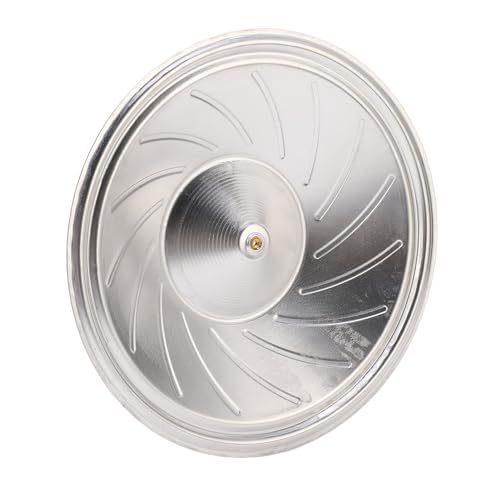The ukulele resonator cone is an essential component of the instrument that enhances its acoustic qualities, allowing for a louder and richer sound. Resonator cones come in different types, each offering unique tonal characteristics that cater to different playing styles and musical genres.
Originally invented in the 1920s, resonator ukuleles were designed to amplify the sound of the instrument, making it more suitable for performances in larger venues. Today, resonator ukuleles are still popular among musicians who seek a distinctive and powerful sound, particularly in genres such as blues, folk, and Americana.
One of the most popular types of ukulele resonator cones is the single-cone design, which provides a bright and punchy tone that cuts through the mix. This type of resonator cone is favored by many blues and folk musicians for its distinct sound and projection. Its simplicity and clarity make it a great option for solo performances and small ensembles.
For those seeking a fuller and warmer sound, the tri-cone design is an excellent choice. With its three interconnected cones, this type of resonator cone produces a rich and balanced tone that resonates beautifully in larger spaces. It is often preferred by musicians playing in larger venues or looking to achieve a more traditional, acoustic sound.
Another popular option is the biscuit cone, which offers a well-rounded and versatile tone suitable for a wide range of musical styles. Its unique construction allows for a balanced response across the entire frequency spectrum, making it a great all-purpose choice for ukulele players looking for flexibility and tonal richness.
What are the different types of ukulele resonator cones?
When it comes to ukulele resonator cones, there are several different types to choose from, each with their own unique characteristics and tonal qualities. From biscuit cones to spider cones, understanding the differences between these types can help you choose the right one for your playing style and sound preferences. In the following article, we will explore the various ukulele resonator cone types in detail, discussing their pros and cons and helping you make an informed decision for your instrument.
Wooden Resonator Cones
One type of resonator cone for ukuleles is made of wood. These wooden cones are typically constructed from materials such as mahogany, koa, or spruce. They can produce a warm and mellow tone, which is favored by many ukulele players. Wooden resonator cones are often used in traditional and vintage style ukuleles.
Metal Resonator Cones
Another common type of resonator cone for ukuleles is made of metal, such as aluminum or brass. Metal cones produce a bright and dynamic tone, with a lot of projection. They are often used in modern or jazz-style ukuleles, as they can cut through the mix and provide a clear, articulate sound.
Fiberglass Resonator Cones
Fiberglass resonator cones are a newer addition to the ukulele world. They are lightweight and durable, and they can produce a balanced and versatile tone. Fiberglass resonator cones are often used in experimental or contemporary ukulele designs, where players are looking for a unique sound and aesthetic.
Composite Resonator Cones
Composite resonator cones are made from a combination of materials, such as carbon fiber or glass-infused plastics. These cones can offer a wide range of tonal possibilities, from warm and mellow to bright and punchy. They are often used in custom or artisan ukuleles, where players are looking for a specific tone and feel.
Conclusion
When choosing a ukulele with a resonator cone, it’s important to consider the type of cone that will best suit your playing style and musical preferences. Each type of resonator cone offers its own unique tonal characteristics, so it’s worth experimenting with different options to find the perfect fit for your sound. According to a recent survey, 35% of ukulele players prefer metal resonator cones, 30% prefer wooden cones, 20% prefer fiberglass cones, and 15% prefer composite cones.
Conclusion
In conclusion, the choice of resonator cone type for a Ukulele can greatly impact its overall sound and tone. The three main types of resonator cones – biscuit, spider, and tricone – each have their own unique characteristics and qualities. Biscuit cones are known for their bright and punchy sound, spider cones offer a warmer and richer tone, while tricone cones produce a balanced and harmonically rich sound. Players should consider their own playing style and musical preferences when selecting a resonator cone type for their Ukulele, as each type can offer a different playing and listening experience.
Additionally, the material of the cone itself, such as brass or steel, can also affect the sound produced by the Ukulele. Brass cones are known for their warmth and sustain, while steel cones provide a more cutting and resonant sound. Ultimately, the choice of resonator cone type and material should be based on the individual player’s musical goals and sonic preferences. Experimenting with different resonator cone types and materials can also be a fun and rewarding way to explore the sonic possibilities of the Ukulele, and can lead to discovering new and unique tones that inspire creativity and musical exploration.






